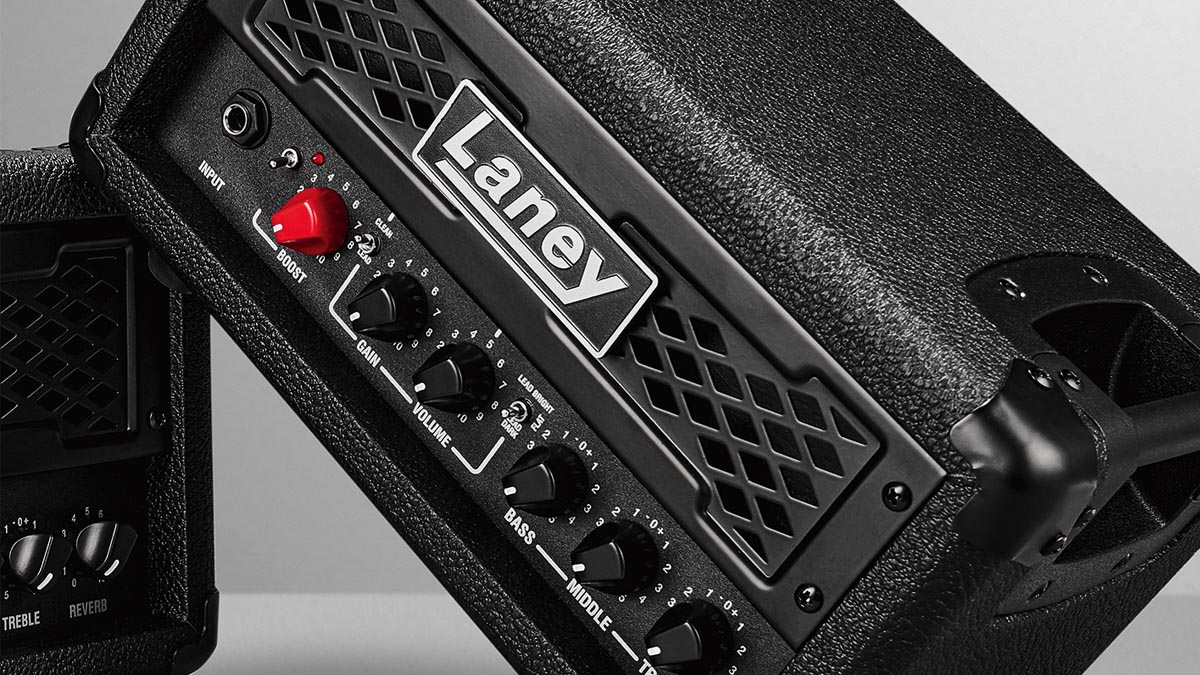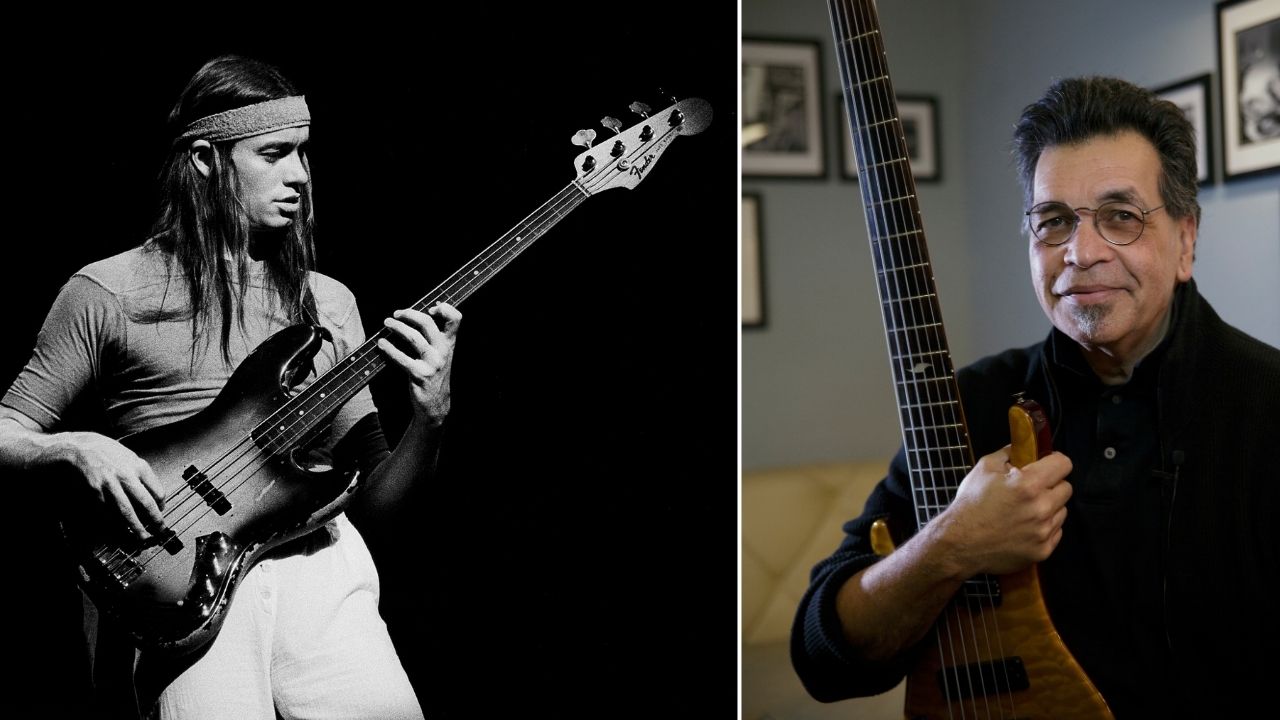Guitar World Verdict
Whether you use it at home or on stage, this compact head means business, delivering a wealth of convincing tones, all with a 60-watt output that can handle any live gig with ease.
Pros
- +
Wide range of tones with enough gain for metal.
- +
Footswitchable boost.
- +
Compact and portable.
- +
Plenty of power for gigs, quiet enough for home.
Cons
- -
No footswitching between clean and lead modes.
You can trust Guitar World
With a history that stretches back to 1967, Laney’s place in the rock universe is assured. Most people would naturally point to London and Liverpool as epicentres for the development of British rock and pop in the mid-to-late 1960s, but the Black Country area of the West Midlands has an equal claim to fame as the origin for many great bands including Black Sabbath, ELO, the Move, Judas Priest, Slade and many more.
Laney founder Lyndon Laney’s involvement in music included playing bass in a collective project called Band of Joy, which featured a certain Robert Plant as its singer and a drummer known as John Bonham.
When Lyndon left performing to focus on manufacturing, his guitar amps quickly achieved fame in the hands of those local bands who used them, most notably Black Sabbath’s Tony Iommi, where Laney amps were the foundation of the sound and genre that’s come to be globally recognised as heavy metal.
Today, the metal fraternity is well served by Laney’s Ironheart range, with a variety of feature-heavy heads and combos including the 120-watt all-valve triple channel IRT120H head and the smaller but equally impressive IRT-SLS 300 head, which uses Class D technology to squeeze 300 watts of power from a highly portable package with an all-valve preamplifier based on a pair of 12AX7’s and a long list of performance‑honed features.
Back in early spring at this year’s re-scheduled NAMM show, Laney added the critically-acclaimed Ironheart Loudpedal, a two-channel preamp stompbox with advanced connectivity and a seriously loud 60-watt power stage, all in a package not that much bigger than two packs of playing cards. Now, Laney are continuing the portable power theme with a pair of compact heads you can lift with one finger, the Leadtop and two-channel Dualtop.
Intended to offer the same tightly-defined modern rock sounds as the Loudpedal, but in a more conventional head package, they’re likely to appeal to anyone wanting great tones from a compact and portable head that can sit on a bookshelf at home or blast out 60 watts of tone at any size of gig.
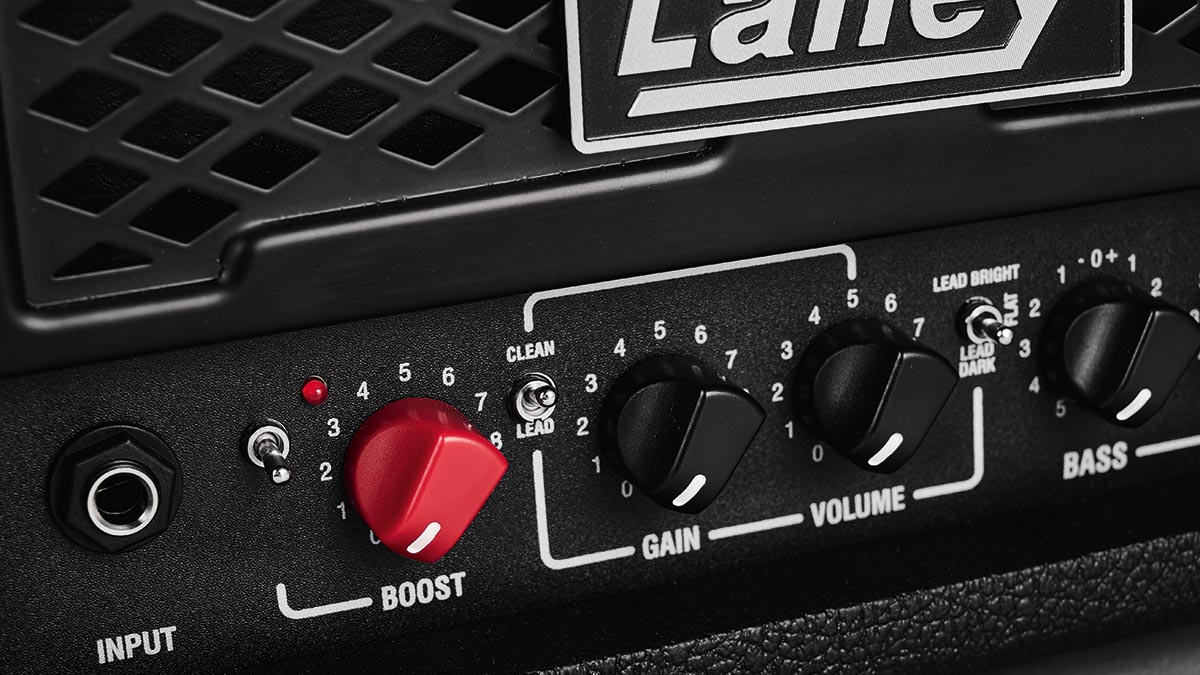
Laney’s Leadtop is probably one of the most compact amp heads you can buy that isn’t a toy; essentially it’s a stripped-down version of the IRF with a single channel and a footswitchable boost, providing an impressively wide range of sounds from snappy clean rhythm tones to full-on metal.
All the latest guitar news, interviews, lessons, reviews, deals and more, direct to your inbox!
Despite the compact dimensions, it’s a well-specified and good-looking head that’s built to last, with recessed handgrips in a solid MDF sleeve covered in thick black vinyl. Red LEDs behind the front grille light up when power is applied from the laptop-style mains adaptor.
The boost works in clean and lead modes, firing into a familiar preamp arrangement of gain, master volume and a three-band passive EQ. A toggle switch lets you select between clean and lead modes, with the gain knob active when lead is selected.
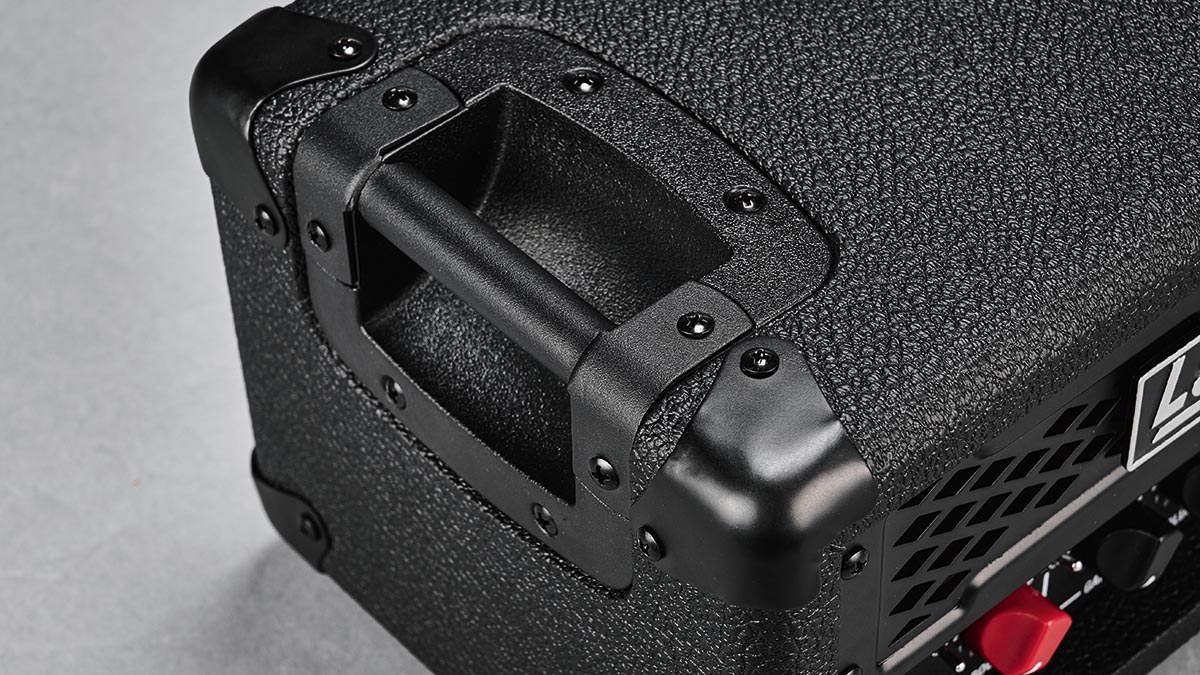
Lead mode also activates a toggle switch that gives you flat, dark and bright voicing options. It’s a versatile arrangement from a deceptively simple control layout, making it easy to dial in for any type of guitar.
Versatility continues on the rear panel, with cabinet-emulated headphones out and aux in sockets, and a fixed level series effects loop where the send socket doubles up as a line out.
A single speaker outlet delivers a maximum of 60 watts into an 8-ohm load, with a power reduction switch that drops output down to around one watt for home practice. Hooked up to a suitable speaker cab, the Leadtop easily handles average pub gig volume levels and while you can’t footswitch between clean and lead modes, you can set up a clean-ish rhythm tone and use the footswitchable boost for leads.
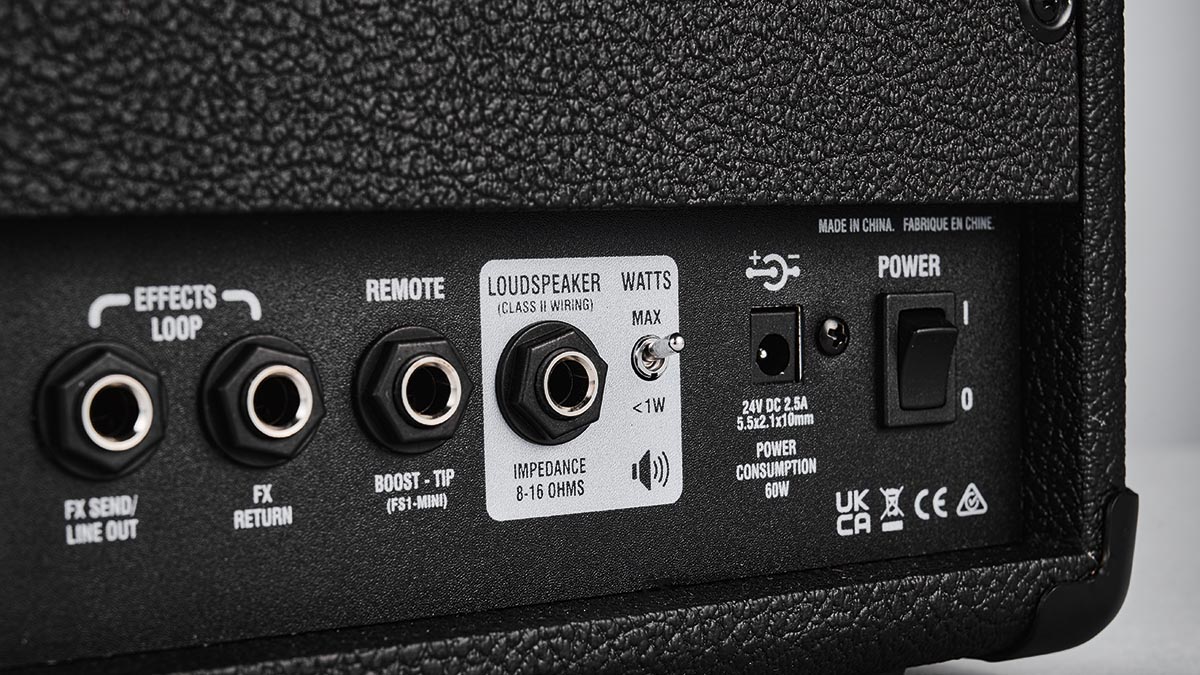
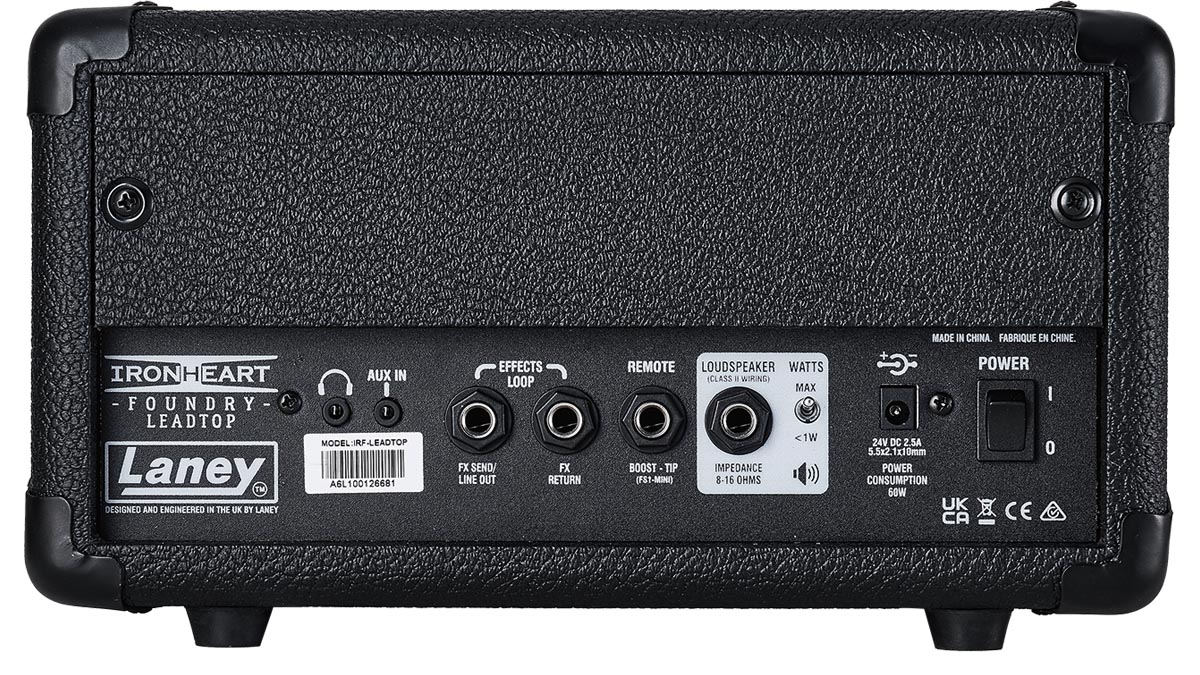
Size and portability are increasingly important factors to consider for many guitarists when buying a new amplifier, and the new Laney Leadtop makes a a great choice.
The stripped-down Leadtop makes up for fewer features with ultra-compact dimensions that mean it can find a home anywhere, yet without sacrificing a gutsy sixty-watt output stage that can handle any live gig with power to spare.
Specs
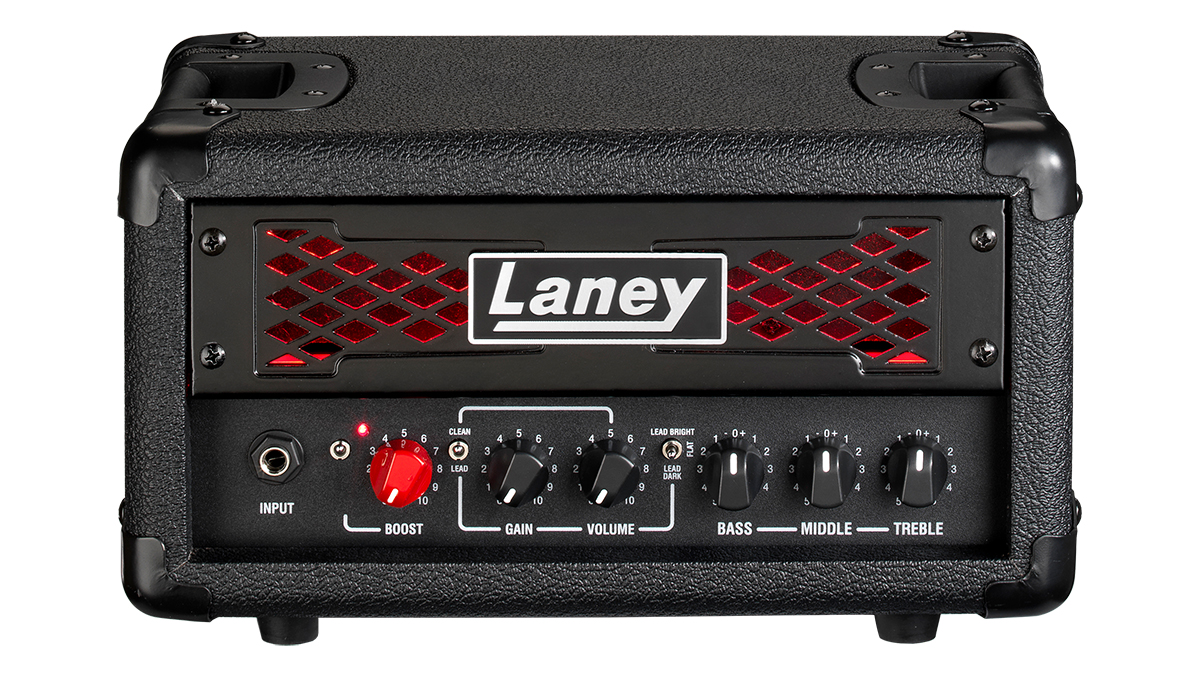
- PRICE: $299 / £169
- TYPE: Solid-state preamp and power amp
- OUTPUT: 60 watts RMS, switchable to approx 1 watt RMS.
- DIMENSIONS: 292mm (w) x 184mm (d) x 163mm (h)
- WEIGHT: 3.7kg / 8 lb
- CABINET: MDF sleeve
- CHANNELS: One
- CONTROLS: Boost level, boost on/off switch, clean/lead gain switch, bright/natural/dark pre-set voicing switch, gain, volume, bass, middle and treble. Output power select (on rear panel)
- FOOTSWITCH: Single-button footswitch (not supplied) toggles boost function
- ADDITIONAL FEATURES: Transformer-isolated series effects loop (effects send doubles as line out), 60 watt/1 watt power switching, aux in, headphones out
- RANGE OPTIONS: The two-channel Dualtop costs $429/£259. There’s currently a bundle deal on the Leadtop and matching GS212FE speaker cabinet for $579/£479.
- CONTACT: Laney
Nick Guppy was Guitarist magazine's amp guru for over 20 years. He built his first valve amplifier at the age of 12 and bought, sold and restored many more, with a particular interest in Vox, Selmer, Orange and tweed-era Fenders, alongside Riveras and Mark Series Boogies. When wielding a guitar instead of soldering iron, he enjoyed a diverse musical career playing all over the UK, including occasional stints with theatre groups, orchestras and big bands as well as power trios and tributes. He passed away suddenly in April 2024, leaving a legacy of amplifier wisdom behind him.
